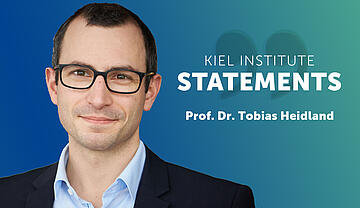Statement
EU risks more refugees from the Middle East

"Ten years after the start of the civil war in Syria, the EU is risking the migration of more people to Europe. The situation of many refugees living in neighboring countries is dramatic—exacerbated by the COVID-19 pandemic. If the EU wants to reduce secondary migration to Europe and assume a fairer share of the protection of refugees, it must urgently increase the humanitarian aid for the countries of first asylum in the Middle East.
Since the outbreak of the war, over 5.6 million people have fled Syria. Another 6.6 million have been internally displaced. The EU should provide much more support to Syria's neighboring countries, where most refugees live. Turkey hosts the largest number of registered Syrian refugees, currently 3.6 million. Lebanon is home to about 1.5 million, meaning that roughly every fourth inhabitant is a refugee. Of these, almost 90 percent now live in abject poverty. The COVID-19 pandemic and the resulting economic crisis threaten to push even more people into poverty. The provision of significantly more funds by the EU would be an important step toward sharing the responsibility for refugee protection more fairly.
While EU member states have been arguing for years about reforming the common European asylum system, they agree that cooperation with migrants' countries of origin, transit countries, and countries hosting refugees should be intensified, reducing onward migration to Europe. This is also in line with public preferences in Europe. Our research clearly shows that the general public supports direct financial aid to countries of first asylum. This is even true in countries whose governments are vehemently opposed to receiving and caring for refugees within Europe.
Like the governments of European states, citizens want funds to be tied to effective cooperation in reducing migration movements. Combined, these two motives of showing solidarity and curtailing migration could forge a consensus among otherwise divided EU member states—and give a strong mandate for all EU policy makers to ensure adequate funding for UNHCR refugee programs.
Even without the pandemic, this step would have been overdue, but now it is all the more urgent, as many refugees who had previously barely got by in Turkey or Lebanon have since lost their livelihoods."




